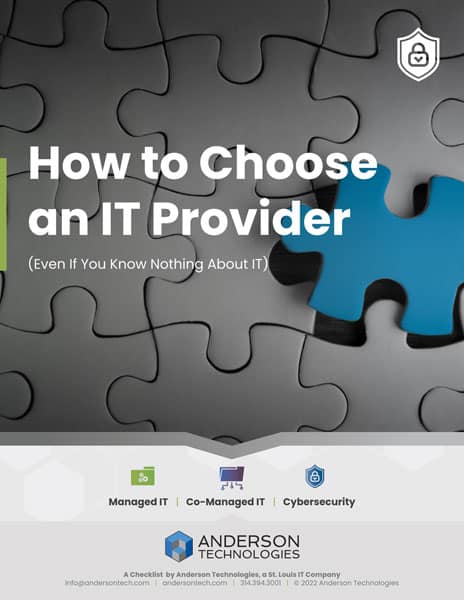Choosing outsourced IT services for your small business can be challenging, especially if you’re not an expert on the topic. It’s easy to feel intimidated by the complexity of technology, and some vendors may even hide behind buzzwords and jargon. To ensure you’re choosing the right company for your needs, do your research and ask questions. A well-trained expert should be able to answer them in plain English.
There’s a lot at stake. Cybercrime is a growing threat. IBM estimates that a business is attacked an average of more than 16,850 times a year. That means every business faces more than 46 attacks a day! Your IT partner will help keep your network and data secure. It will also drive efficiency as well as cost-savings and ensure your business technology runs smoothly.
Here are several important questions to ask when evaluating outsourced IT companies.
1. How long has the firm been in business? How many employees does it have? How many clients are those employees helping?
These introductory questions help you get a picture of your prospective IT vendor and give a feel for the personality and communication style of the person you’re speaking to. You can also ask about the company’s client retention rate and its approach to customer acquisition.
2. What is the typical size of the companies it likes to help?
Does it focus on businesses with one to 10 employees or enterprises with 1000+? Different-sized businesses have different needs, and those needs require different skills and expertise. An IT company could certainly excel at helping businesses of various sizes, but the expert needs to be able to articulate that to you.
3. Does the IT consulting company specialize in a particular industry?
Depending on the nature of your needs, a generalist might be fine, but if you are looking for sophisticated services or work in a niche with unique regulations, there could be benefits to partnering with a firm with domain knowledge.
There are also advantages to working with a firm that has a diverse client roster. Ask how the company’s experience in other fields benefits your business.
If you have a specific project in mind, such as moving from a standard server model to the cloud, ask about this, too. The vendor’s representative should be able to describe similar completed projects. Ask if any part of the project surprised their team and if they learned anything that could inform your endeavors.
4. What is the last threat the IT company helped a client protect itself against? How was the threat detected? How did the event unfold?
The vendor’s response will shed light on its experience and approach as well as its communication style. Look for honesty, transparency, and self-reflection. Did the firm and its clients change anything as a result of the attack?
5. How will this IT company support and protect your business?
The outsourced IT company’s understanding of cybersecurity is important but so is its logistics. How hands-on is it? What level of support will you receive? Whom should you call if something goes wrong on the weekend? Which team members will you be interfacing with regularly? Details matter, and to avoid surprises, it’s best to have them on the table before you move forward.
6. How much do their services cost, and how long do they take?
These questions may seem obvious, but don’t overlook their interconnectedness. If an IT company’s price is much lower than other proposals you’ve received, it could be because it is planning to invest less effort in supporting your business.
Look for vendors with a big-picture approach willing to take ownership and work as an integral part of your team. Because business infrastructure issues are so interconnected, an IT company isn’t doing you any favors by swooping in to fix ad hoc problems. If it doesn’t express a desire to assess and understand your business’s architecture in its totality, be wary.
7. What is the #1 job of a system administrator?
The answer is simple: to protect and preserve the integrity of client data. If a potential IT vendor doesn’t answer with something similar—something that demonstrates its commitment to maintaining its customers’ data, security, privacy, and effective work flow—proceed with caution.
Choosing the right IT partner is a big decision. Asking intelligent questions will help you better understand if a vendor is right for your needs. Remember, even if you’re not an expert in cybersecurity, the person you’re speaking with should be able to provide thoughtful and clear responses to your questions.
The team at Anderson Technologies, a St. Louis IT consulting company, is happy to discuss any of the questions above, or anything else you might like to ask. Feel free to give us a call at
314.394.3001.





